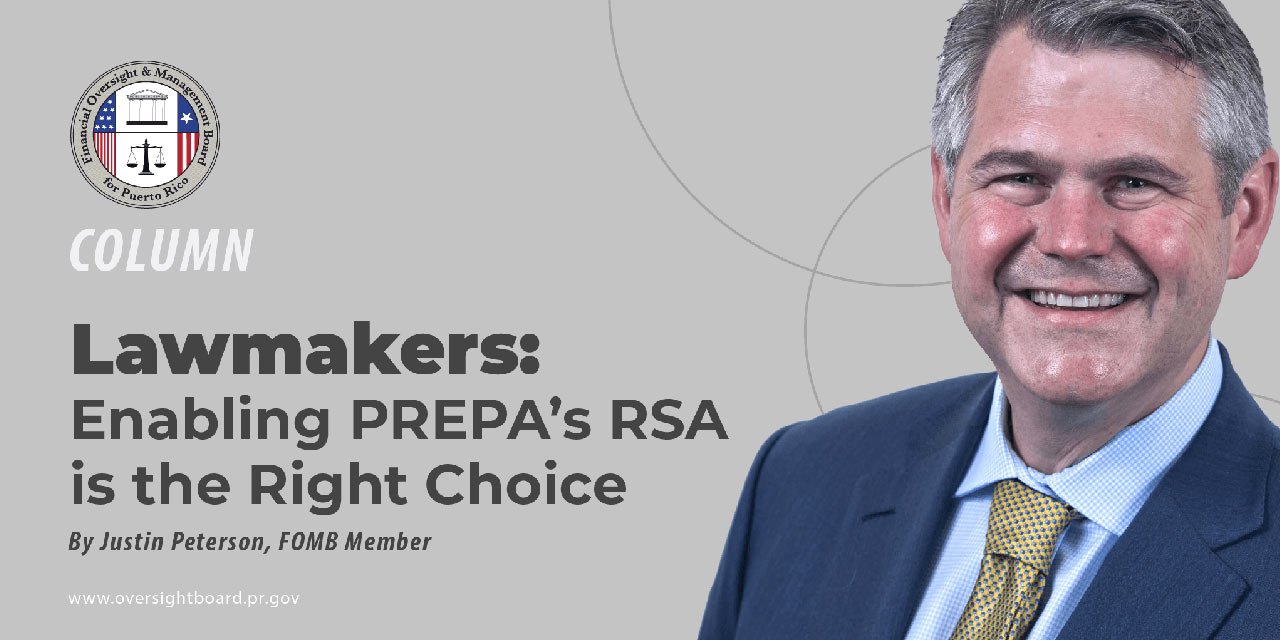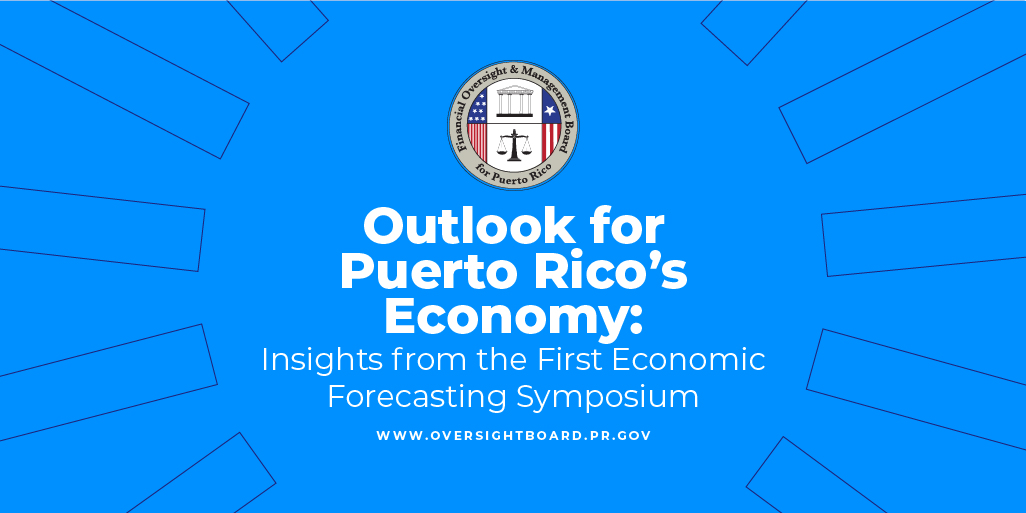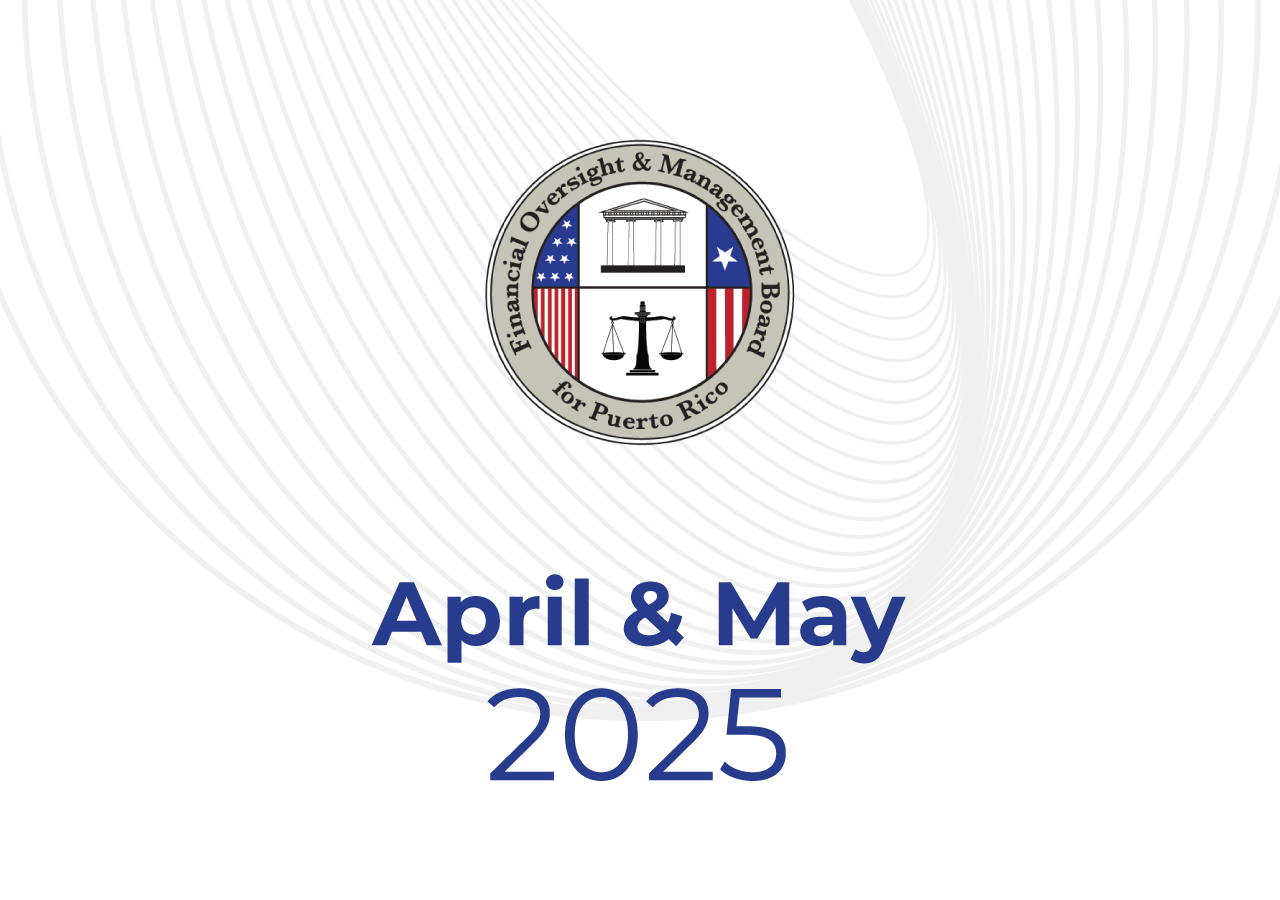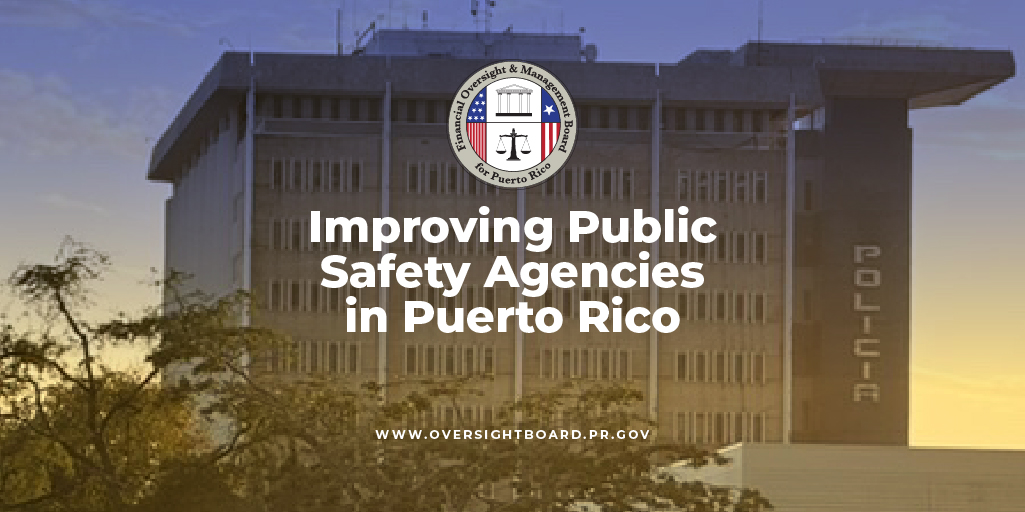This column was originally published in Spanish by El Vocero on February 25, 2022
This is all good news, but there is still more work to be done. The biggest task the FOMB and the elected leaders of Puerto Rico now face is the Puerto Rico Electric Power Authority (PREPA). PREPA remains in bankruptcy, and, along with the Highways and Transportation Authority (HTA), represents the last major restructuring needing to be undertaken by the FOMB. PREPA’s bankruptcy and its record of abject failure was brought about by years of mismanagement and neglect. Puerto Rico’s citizens deserve more reliable, more affordable and cleaner energy. Unfortunately, PREPA hasn’t provided this. The utility has systematically ignored the maintenance of its asset base and has been more focused on responding to crises than preventing them.
The Restructuring Support Agreement (RSA) was developed by the FOMB to provide a pathway out of bankruptcy for PREPA and to transform Puerto Rico’s power sector. The RSA provides for a 32% cut in the debt owed by PREPA, resulting in annual savings of $375 million for Puerto Rico’s ratepayers. Notably, one of the most important features of the RSA for consumers in Puerto Rico is that it will lock in the transition charge, the mechanism by which PREPA will pay the debt that it owes, so that any decline in demand for electricity will be borne entirely by the bondholders – not by ratepayers. Like the Commonwealth’s Plan of Adjustment, the RSA is a good deal for Puerto Rico, which still provides a mechanism for bondholders to be paid what they are legally owed.
Despite the RSA’s many benefits, some of its critics have resorted to demagoguery by falsely labeling it a “sun tax.” As I publicly stated last fall at a public meeting of the FOMB, this is nothing more than propaganda that ultimately hurts Puerto Rico by hindering the restructuring and transformation of PREPA. In fact, ending bankruptcy at PREPA is a necessary component of this transformation that will bring more reliable, affordable, and clean energy.
Currently, Puerto Rico utilizes highly inefficient bunker fuel for much of its power generation. It’s hard to overstate the economic impact of this on Puerto Rico’s consumers in an era of rising fuel costs, let alone the impact to Puerto Rico’s environment by delaying a transition to cleaner forms of energy. Savings from power generation could reach $25 million annually in the near term, and $175 million annually in the medium to longer term. These savings will translate into lower energy bills for Puerto Rico’s consumers. But none of this will happen if the demagogues who are opposing the RSA get their way.
Right now, the Puerto Rico Legislature is considering legislation that would enable the RSA. It’s my sincere hope that Legislators will ignore the unscrupulous individuals peddling fake news about a “sun tax,” rise above politics and stand up for Puerto Rico’s power consumers by approving the legislation. A failure to do so won’t stop the FOMB from finishing the job of restructuring PREPA and paying bondholders who have received nothing for eight years. But it will make the process more expensive for Puerto Rico. As my favorite president Ronald Reagan once said, it’s time for choosing. Let’s hope Puerto Rico’s leaders choose well.





